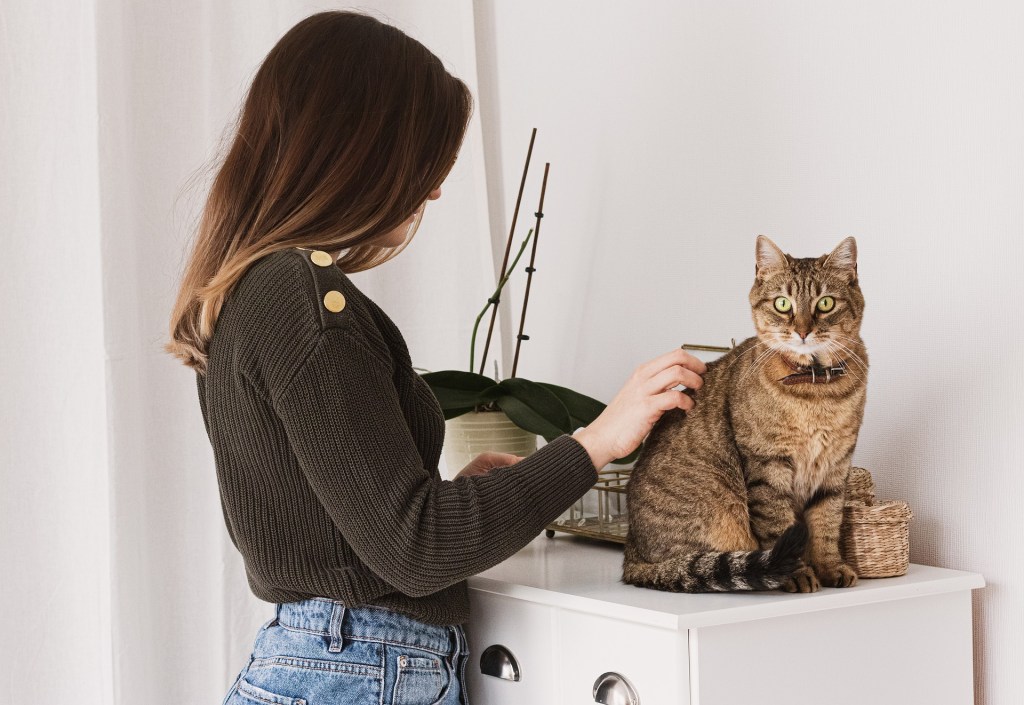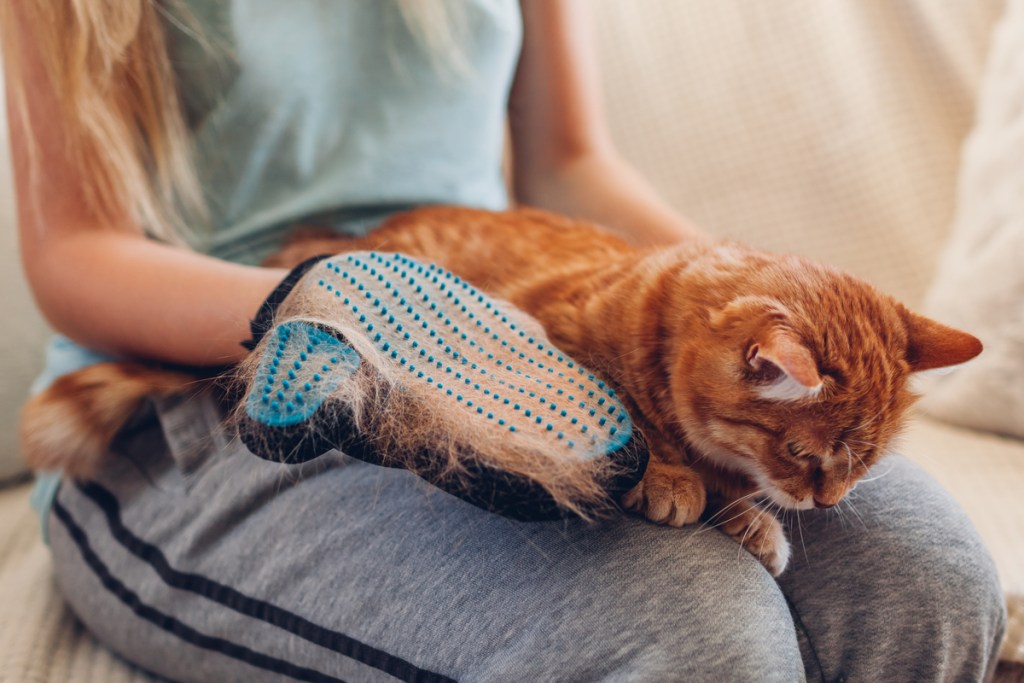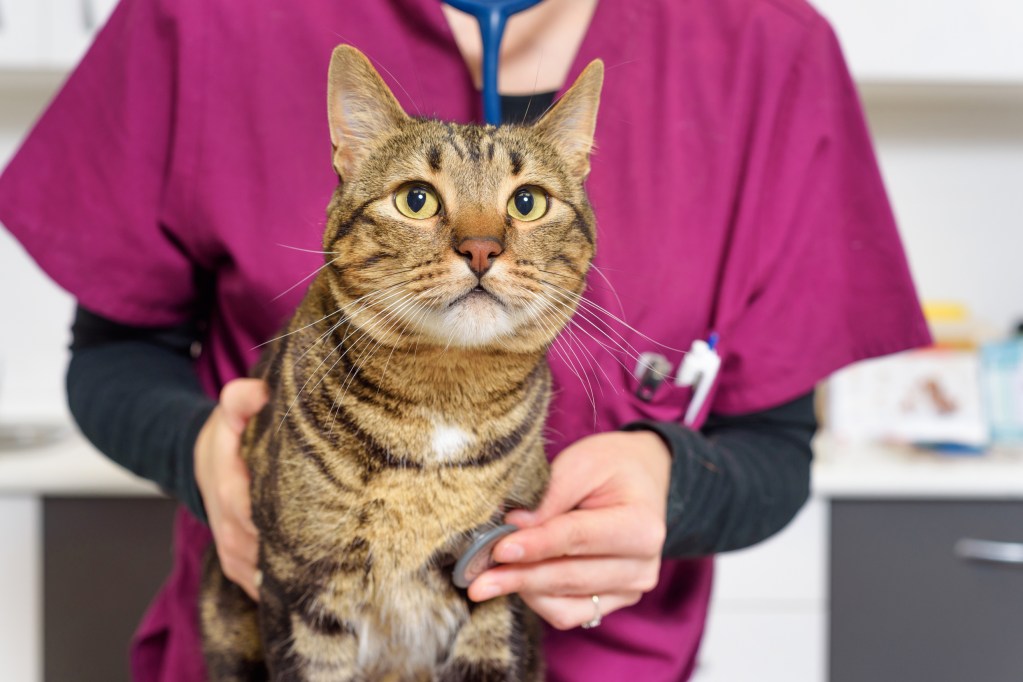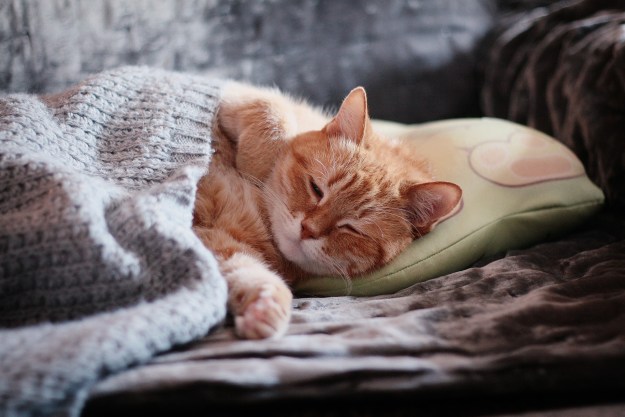When you share your life with cats, you expect to deal with some shedding. There’s always bound to be a bit of cat hair on your furniture and clothes, and this is especially true when your cat is actively shedding. Brushing your feline is a great way to eliminate dirt, dander, and dead hair from his coat. It also increases blood circulation and improves the skin’s general condition. But if you notice your pet losing significantly more hair than usual, you should look for a deeper issue that could be causing the excess shedding.

Why is my cat shedding so much?
If you’re wondering, “Why is my cat shedding so much?” — then consider the following potential reasons. If you can identify a cause, you may be able to take some steps to reduce the shedding and minimize the amount of cat hair that ends up scattered around your house.

Allergies
If your cat sheds a lot, allergies could be to blame. The key to fixing this issue will be determining what kitty is allergic to. Cats who shed excessively during certain times of the year, like the spring and fall, may be allergic to plants and trees that are in bloom at the time. Just like humans experience fluctuating allergies, so can your little guy. This can sometimes be difficult to spot, though, since he will naturally shed at these times of the year.
Food allergies can be common in animals too. And lastly, it’s possible that your cat is allergic to something else in the environment, such as dust, perfume, and even cleaning products. If your cat has an allergy, you might notice that he’s increasingly itchy, shedding a lot, and losing so much hair that he’s developing bald spots. Your vet can help identify the cause of the allergy and provide a solution to make your mouser feel more comfortable.
Stress
Stress can cause cats to both over-groom and not groom enough, which can contribute to increased shedding.
If your furry friend is stressed, you might notice other symptoms as well. Your cat might lose his appetite, start sleeping more or less, and become antisocial, retreating to secluded areas in your home. In some cases, a stressed cat might react aggressively to other family members with whom he’s usually friendly and comfortable.
If you notice some of these signs, then stress might be behind your pal’s increased hair loss. You’ll need to try to identify the stressor. Think about any lifestyle changes that you’ve made recently, like bringing home a new baby, adopting a new pet, or moving to a new house. Any shifts like these can be a major source of stress for cats. You can help reduce your cat’s stress by giving him a spot in your home where he feels safe and comfortable. This might mean a room all to himself. You can also try using cat pheromones to help calm and reassure your cat.
Pregnancy
Even pregnancy might increase hair loss. The hormone changes can cause your female cat to lose more hair while she’s pregnant. The good news is that this is temporary, and once your cat gives birth and her body goes back to normal, the excess shedding should resolve.

Why a vet check is important
Several other health conditions can cause excessive shedding in cats. Ringworm, thyroid disease, fleas, and other issues can make your cat lose more hair than normal. Sometimes a pet can have a reaction to a medication or a flea treatment that causes hair loss. If you notice any changes in your cat’s health, including increased shedding, it’s always a good idea to take your cat to the vet for a checkup, just in case.
Most of the time, increased shedding is harmless, and once you determine what’s causing it, you may be able to reduce it. Even factors like diet and nutrition can contribute, so it’s important to carefully consider all the factors. In the meantime, be sure you have the right tools to help control the hair in your home. A powerful vacuum designed for homes with pets can help, and a few lint rollers are essential. Regularly cleaning up cat hair can help reduce how much of it ends up on your clothes.
Editors' Recommendations
- Wondering why cats chirp? Fascinating reasons why your cat chirps at birds (and you)
- How to cat-proof your balcony before the unthinkable happens
- There’s a totally normal reason cats throw up after eating grass – here’s why
- Your cat trilling is actually a good thing – here’s why
- Why doesn’t my cat meow? Here are 5 reasons why your feline friend is silent



